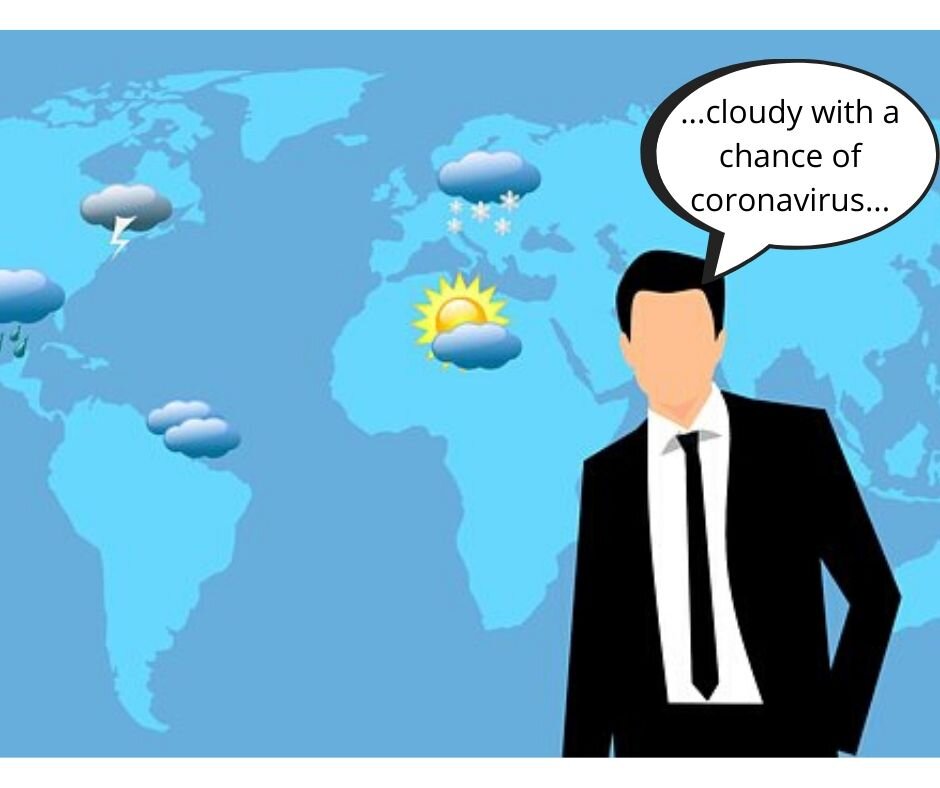Readers of this blog would be forgiven for forgetting that I have a Master’s in Public Health. I worked in the field of public health in over a dozen countries for close to twenty years. With that qualifier, please read my message to non-public health scientists jumping in on health messaging during the Covid-19 crisis.
If you are a scientist in a field other than public health, posting your opinions on social media and contributing to the dialogue around Covid-19 as an “expert,” I have a message for you: please stop. Despite your desire to help and your considerable training, in these matters you must hold yourself to the same standard as our colleagues in the medical profession: do no harm. If you can’t be certain your messaging or posting will meet this criterion, then for the good of others, stick to your own discipline and don’t share. Here’s four reasons why.
1. The right words save lives; the wrong words kill people. This is the excruciating balancing act public health officials assume every time they speak. The stakes are high and we know it. Last week, here in Seattle, meteorologist Cliff Mass decided to use his popular weather blog to second-guess the analysis of epidemiologists. While Cliff Mass’s blog is a local favorite, in his field, if Mass gets a prediction wrong, lives are not on the line with the same urgency. With due respect, he’s not accustomed to these stakes.
Public health professionals think twice about second-guessing data or offering assurances without basis. We know a misstep is costly. As a result, we parse our messages carefully, or try, as time allows. We have practice being deliberate. Our president does not. He extemporaneously and recklessly riffed on chloroquine as a “treatment” last week. Now people are dead from chloroquine overdosing in Nigeria and Arizona. That is a direct line of causation from his “musings” to their actions. Words have consequences.
Want an example responsible and reassuring public health communication, one that’s downright inspiring? Look no further than Dr. Emily Landon’s appearance last week at the Chicago mayor’s press conference. She did more good in eight minutes than our president has done in eight weeks. She has practice and experience. It shows.
2. Non-experts have major gaps in their public health knowledge. This results in bad analysis and poor advice. I don’t ask a carpenter to fix my car. Even if non-experts like Cliff Mass provide caveats that they are not epidemiologists, it’s insufficient. Casual readers grant them more credibility than they deserve. You might like the sound of your own voice. You might be accustomed to people turning to you for advice (I know I am). But ask yourself if your uninformed opinion is truly helping or if it could do harm. A lot of non-experts weighing in muddles public health messaging. We need clarity. When in doubt, stick to your lane.
Dr. Michael Levitt, (a Nobel Prize winner in chemistry) did not. His recent analysis covered in the LA Times is interesting but of dubious value. It may do harm by providing false reassurance. That bias might kill people. Dr. Levitt’s knowledge of chemistry and biophysics is expansive. That expertise is not transferable to disease outbreaks and health education. His models may be incomplete. We don’t know if they account for the irrationality of human nature or the behavior of panicked crowds. Levitt and Mass have not studied the lessons learned from thousands of previous public-health messaging campaigns or disease outbreaks. If either man had, they would be cognizant of the delicacy and clarity needed in these moments. But they’re not.
This gap becomes obvious when Mass makes comparisons between traffic safety and virus preparedness. He cites that a few thousand traffic fatalities each year do not lead us to shutting down highways. This is correct but misleading. The threat of deaths from Covid-19 is in the millions, not thousands. Three-hundred and sixty-four deaths were enough to remove the 737 Max from service. The traffic fatality analogy might satisfy the writer’s own need to be heard, but it is flawed. A vulnerable public deserves better.
3. The challenge in public health is that when it works, nothing happens. To paraphrase Dr. Emily Landon, if this all ends up seeming like it was for nothing, then that means success—because nothing happened to you or your family. This is the sad irony of public health. It’s why we take it for granted. Success is normal, mundane life. We take the kids to school. We drive to work. We drink in bars. We eat in restaurants. Water flows from taps and toilets flush. Those things make for terrible Hollywood movies.
But public health comprises all the vital background things we need so we can enjoy bars, restaurants, and movies. Public health workers are the unsung heroes. They aren’t portrayed in long-running dramas on NBC or CBS the way doctors are. When public health works, it’s boring to the rest of us. We should all be so lucky. With their intellectual peacock displays, outside “experts” undermine the men and women of public health departments—and certainly those workers are too busy right now (and too humble) to tell meteorologists and biochemists how to do their jobs.
4. Optimistic comparisons from China and South Korea are not analogous to the US. I understand the motivation of the op-ed writer in the LA Times who cited Dr. Levitt’s research and his choice to use the Nobel laureate’s quote “We’re going to be fine.” Messages to remain calm are valuable. But we also have to be cautious about drawing too many conclusions from China and South Korea. Both countries had wildly different initial conditions than we have here in the US. China is an authoritarian government that thinks nothing of trampling individual rights. The draconian measures there are not possible here. South Korea benefited from wide-spread testing. They also benefited from a fast-acting government. In the US, we don’t have either. What we do have is an unscrupulous administration led by a president with a long list of lies, who displays pathological deficits in his ability to process empathy or shame.
To non-public-health scientists: you have scruples, you have education, you have an ability to reason and to listen. If you didn’t, you wouldn’t be where you are. Don’t put yourself in the same category as a historically bad and amoral president. Please, with urgency and respect, stick to your own discipline. Do no harm. Leave the messaging and modeling to the experts.

